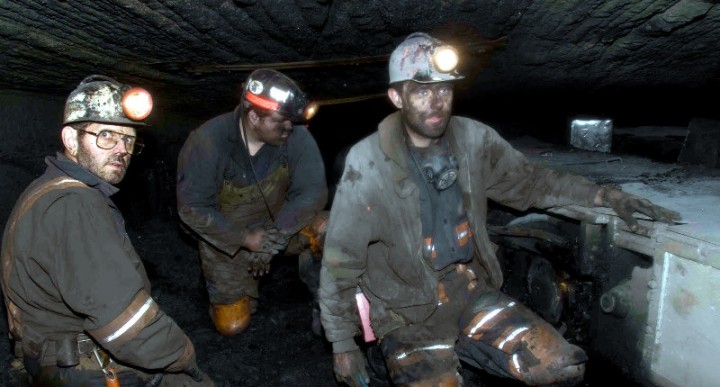You’re More Likely To Die From Work-Related Toxins Than Guns

According to the CDC, roughly 2.6 million Americans died in 2013. Of those 2.6 million, an estimated 33,000 died from gun-related injuries. If that sounds like an alarming number, you may be surprised to learn just about as many people died due to falling. So, guns are pretty much tied with gravity in terms of causes of death in the United States.
But don’t let the uproar over gun violence fool you, there’s another insidious killer in our midst: work. Yes, work. That thing we need in order to pay bills, have a roof over our heads, and put clothes on ourselves.
That very same thing has resulted in an estimated 50,000 deaths in the United States in 2013. Work-related deaths caused by exposure to hazardous conditions accounted for an estimated 50,000 deaths and hundreds of thousands of illnesses according to a study published by the Center for Public Integrity.
Slate did a pretty good article going into the conditions under which workers get sick, injured, and potentially killed due to exposure to cancer causing and other chemicals or substances.
While we continually find new ways to make obtaining, owning, and carrying a gun more complicated in this country, we pay absolutely no attention to the degradation of the quality of life of the individuals who go out there and repair roads, work on oil rigs, and build bridges.
via Slate
“The stark realization that asbestos is legal, lethal, and everywhere is igniting feelings of anger, fear, and disgust,” says Linda Reinstein, CEO and co-founder of the Asbestos Disease Awareness Organization. “Similar to gun violence, many people have become numb and complacent about asbestos.”
Well, the workaround proposed is the use of federally-backed environmental protection measures to bring potential felony charges to companies found exposing their workers to unsafe conditions. Quaint. The main issue is that a lot of companies are switching to contractors to fulfill work orders — removing liability for those hazardous conditions under which workers are exposed to.
Let’s not delve into the semantics of workplace health issues. Fifty thousand, thirty thousand — those are real numbers and the causes are very real, as well.
Lost in the statistics are the very real faces of those who met their end by either channel.
The reactionary swagger to hearing such news usually prompts some type of outrage or some far-fetched call to action or reform. Too reactionary. The simplest process, sadly in both cases, is to simply enforce the laws currently on the books. The Occupational Safety and Health Administration would do well to simply do their jobs instead of sit back and wait for retirement or a cushy gig in the private industry. Similarly, the federal government would do well — instead of issuing far-fetched imperial decrees — to simply enforce the present regulations on the books.
It’s amazing what can happen when we just follow by the rules we established through a democratic legislative process.
In the meantime, we sincerely hope that those who go out there to make this country a great place to live are duly compensated and cared for should they be placed into harm’s way without the proper safety equipment. Similarly, we hope gun owners remain safe through vigilant practice of keeping control of their firearms until there’s a legal and just reason to use them.












